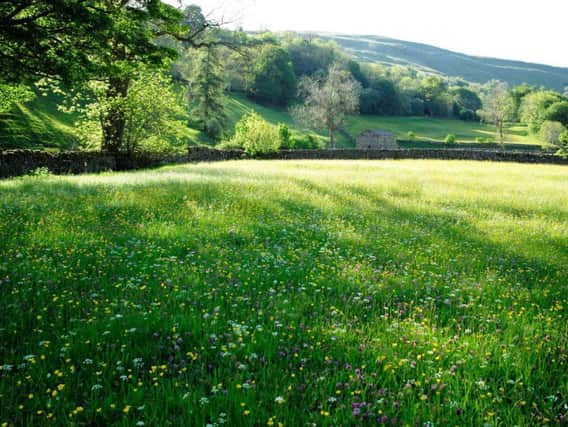Anna Round: There is only one way forward for Yorkshire's rural heartland


Subsidy payments at current levels are guaranteed until 2020, but that’s just three harvests away. A range of competing priorities have been aired in the news over the past few weeks; environmental protection, a sustainable and safe food supply or reducing reliance on subsidies.
Enthusiasm for replicating the CAP system in its current form is hard to find, which comes as little surprise.
Advertisement
Hide AdAdvertisement
Hide AdFarming faces a rapidly changing context of global trade, climate conditions and scientific advancement, and it needs a policy framework that’s designed for this in Britain’s post-EU future.
Leaving the EU opens up an opportunity for bold and innovative change, albeit with a period of gradual, managed transition. We need a policy that sets out a vision for Britain’s rural areas, along with a set of practical steps for achieving it.
Farming isn’t the whole story of the rural economy but it is at its heart. Agriculture accounts for less than one per cent of UK GVA, but around 70 per cent of Britain’s land area is actively farmed – and how it is farmed shapes the landscape for the rest of rural life and rural business.
Tourism depends on an unspoiled natural environment to bring visitors to the countryside. Rural communities thrive partly because commuters from nearby towns choose to live there. And advanced manufacturing and energy generation (both key sectors in rural Britain) depend on space, natural assets and a good quality of life to attract the skilled workers they need. If farms become unsustainable and go out of business, what happens to their land?
Advertisement
Hide AdAdvertisement
Hide AdThe rural economy also impacts on urban dwellers, through environmental protection, cultural life and – perhaps most strongly and most intimately – through food.
Food production is the largest manufacturing sector in the UK, and British farms produce over half of the food eaten in this country. Yet both this successful industry and our diet also depend at present on imported goods, primarily from the EU but also from further afield.
The trade deals and tariff arrangements which follow Brexit will have a profound impact on how we eat in this country. Despite the importance of price in guiding Britain’s food shopping habits (we spend a comparatively low proportion of our household income on food), quality and transparency in the food chain quickly rise up the list of consumer priorities when questions arise about what’s on our plates.
The rural economy doesn’t stop at the city – or town – limits. It’s connected to urban Britain physically, commercially, culturally and digitally, and it needs infrastructure to keep those connections working. For example, in the age of ‘digital by default’, rural areas need fast, reliable broadband. Rural roads and rail links must to link businesses to the markets and skills which will help them to grow.
Advertisement
Hide AdAdvertisement
Hide AdAnd sectors in the rural economy need connections to knowledge which can transform their work. For example, the agri-tech sector is bringing together farmers’ knowledge of land and lifestock with cutting-edge science and technology, to improve productivity, sustainability, and environmental protection. Could a new system of support for farming offer collaboration to build skills and innovate, and make this just as ‘normal’ as today’s CAP subsidies?
Policy for the rural economy must reflect its interconnectedness. The sustainability of farms isn’t just about how they function as businesses. It underpins diverse aspects of life right across the UK; our food, our energy supply, our advancement in key manufacturing sectors, our cultural life and heritage, and the environment which will sustain our futures.
Place and economy are intimately connected in rural Britain, and policy for the rural economy post-Brexit must be truly place-based and devolved.
In our recent report on the rural economy in England and Wales we proposed an innovative system of rural devolution deals which essentially set up a partnership between central government, rural combined authorities and stakeholders in the rural economy.
Advertisement
Hide AdAdvertisement
Hide AdDeals would be agreed within a framework of obligations to meet national needs and goals (for example, in relation to food production and environmental protection) and opportunities to add value by exploiting local strengths and managing local issues.
This is an ambitious proposal, certainly. But doesn’t the rural economy deserve ambition on this scale?